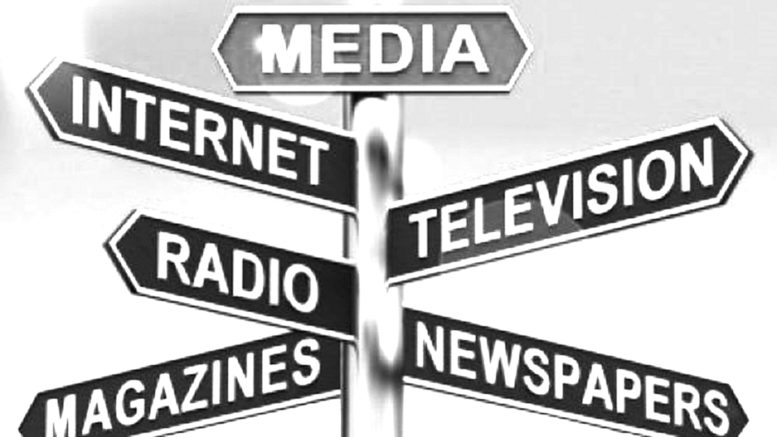Found a quite interesting but short podcast recently that was published by the small government think tank the Cato Institute. In this audio podcast Mustafa Akyol speaks about his new book ‘Why I, as a Muslim, defend liberty’ and about the basic ideas behind the book.
I found the information that Mr Akyol gave about Muslim liberalists in the Ottoman Empire and in the Arab world quite thought provoking as it showed that were forms of liberalism in the Islamic world that were closer to our time than those that I had encountered previously. I knew of Muslim liberalists who had existed hundreds of years before but they and their ideas were destroyed by Islamic extremists who were opposed to their ideas, however it was interesting to learn of the Ottoman and Arabic liberals.
The one part of the Mr Akyol’s podcast that gave me cause for concern was his quoting of the Koran verse that says ‘there shall be no compulsion in religion’ . He left out the bit that follows on which condemns those who will not worship Allah. At first I thought that Mr Akyol was trying to give a false impression of Islam to the non Islamic reader of being a religion of tolerance and peace, which some promoters of Islam have done in the past. But, on reflection, it may be that Mr Akyol was doing what many modern Christians and Jews have done which is to leave out or gloss over those more troubling texts in scripture that do not fit in with post enlightenment thinking. It may well be the case that any future Islamic liberalism will have to leave out the ‘sword and killing’ verses from the Koran or even abandon books like the Hadith in order to create some form of Islamic liberalism that respects individual liberty.
I don’t wholly agree with Mr Akyol or his views, especially his view that Sharia can become a direct analogue of Jewish Halacha law as Halacha only affects the Jewish community, it does not, as Shariah does in Islam-run societies, affect everyone whether Muslim or not. My domain in which I can impose Halacha stretches from my back garden gate to my front gate and no further, which is not something we see in societies that are adherent to Sharia, where Sharia law affects everyone even those not adherent to Islam. I do agree with Mr Akyol that the mixing of religion and state which has characterised Islamic societies has not always been good, but then you can find examples in Christian, ancient Jewish societies and in modern day Israel with regards the political influence of the Haradim, where mixing religion and politics has not been good for those who disagree with religious law.
I found Mr Akyol’s podcast to be a bit of a curates egg, good in parts, but others may like it more than I did or dislike it more than I did. Therefore I’m putting it up for others to listen to so that they can form their own opinions of it.
https://www.cato.org/multimedia/cato-daily-podcast/why-muslim-i-defend-liberty






I was interested enough to download a pdf of Akyol’s book, which I have started reading.
I have to say, thus far, it is a disappointment. For example:
As you note F211, the very next verse after K2.256 “condemns those who will not worship Allah” – as devil worshipers: “those who disbelieve, their guardians are Shaitans [Satans/devils]” (Shakir) and thus evil themselves.
Akyol also refers to al-Wahidi’s “asbab-al nuzul” (“occasions of revelation”) for the narrations/occasions relating to K.2:256 and correctly states that both narrations relate to cases where the children of Pagan Arabs had adopted either Judaism or Christianity before the advent of Islam and the conversion of those pagans to Islam and who were then termed “helpers” “Al-Ansar” in Arabic.
However, he makes no mention of the true facts of these cases. Quoting Al-Wahidi:
“When the Banu’l-Nadir were driven out, they had among them children of the Helpers. The Helpers said: ‘We will not leave our children!’ Upon which Allah, exalted is He, revealed ‘There is no compulsion in religion’. … Those [children] who wished to leave with the Jews did leave, and those who wished to [remain and] embrace Islam embraced Islam”. Thus if these “children of the helpers” wished to remain with their families they HAD to embrace Islam.
In the second case al-Wahidi says this: “A man from the Helpers, from amongst the Banu Salim Banu ‘Awf, had two sons who had converted to Christianity before the advent of the Prophet …[After the migration to Medina,] these two sons came to Medina along a group of Christians to trade in food. Their father went to them and refused to leave them, saying: ‘By Allah! I will not leave you until you become Muslim’. They refused to become Muslim and they all went to [Mohammed] to settle their dispute. The father said: …How can I leave a part of me [to] enter hell fire while I just sit and look?’ Allah, glorious and majestic is He, then revealed (There is no compulsion in religion…) after which he let them go”. [Mohammed] said: ‘May Allah banish both of them. They are the first to disbelieve’. And as we know apostasy is punishable by death in Islam (Ol’ Mo: “If anyone changes his religion, Kill him!”) – if you stay in an Islamic land.
Al-Wahidi goes onto say that these case were “…before the Messenger of Allah … was commanded to fight the people of the Book. But then Allah’s saying (There is no compulsion in religion…) was abrogated and the Prophet was commanded to fight the people of the Book in Surah Repentance”.
A few points to be drawn out:
1. these conversions were from paganism to “Abrahamic” faiths and BEFORE the advent of Islam, thus the conditions were different to those that pertain afterwards.
2. In both cases the non-Muslims were obliged to (a) leave Medina or (b) convert if they stayed (so much for “no compulsion”!) on pain of death.
3. Al-Wahidi states that this verse was *abrogated* by the command to fight the people of the book (and also because it applied to a local issue at a defined time); implicit is that compulsion is permitted and there are Ahadith that state this openly.
– – – –
The point here is not that “Liberal Muslims don’t exist” – they clearly do, nor even that “liberal Islam does not exist” – it clearly does; but that liberal Islam only exists either by cherry picking the Islamic sources or, in Akyol’s words, by “some major reinterpretation” of Islamic sources.
Whilst it is true that there are “seeds of liberty” in the Islamic canon the fact is that there is a sequoia forest of coercion, subjugation and duress.
As I have noted before there have been “liberal” periods in Islam throughout its history (though scarcely that in modern terms), but such liberal periods have inevitably (and predictably) resulted in an orthodox revival (as we see going on today) precisely because the more comprehensive and rounded view of Islam is the orthodox, or which the Iranian, Saudi,Taliban and similar is the summit (or nadir depending on one’s view).
– – – –
To be fair to Akyol he does admit that: “However, quite a few Muslims understand Islam, indeed, as a coercive system—a system that will dictate piety by force, while eradicating impiety, apostasy, or blasphemy, also by force. Moreover, those coercive Muslims are not groundless: they rely on traditional interpretations of the Sharia —Islamic law—which needs …some major reinterpretation, for Islam to be compatible
with liberty.”
My comments here are:
1. The “quite a few Muslims” are a plurality if not a majority in the Muslim world.
2. The “coercive Muslims” do not rely just on Sharia, they rely on the Koran, Sirat and Ahadith as well. This is an important point because whilst sharia is “controversial” in that there are multiple versions just within Sunni Islam (notwithstanding the fact that they largely agree) and they are no more (or less) than the codification into LAW by men of the teachings of Islam, Sharia is not considered infallible. However, by omitting the fact that “coercive Muslims” use the Koran (infallible) and the example in words and deed of the ‘prophet’ (“al-ihsan al-kamil” the “man made perfect” hence also infallible) Akyol is falsely, and grossly, minimising the grounds of “coercive Isam”.
This is not in any way a “review” of the book, it is 200+ pages long and I have only read the first 20 (thus 10%!). However, I suspect that I can already ascertain Akyol’s methodology from how he has treated the sources he uses.
Within the first handful of pages Akyol is clearly cherry picking his (partial) quotes in order to make the evidence from Islamic sources fit his narrative. (Ironically this is contra to the liberal message he is pushing.)
Sadly, I suspect that Akyol is peddling a “fantasy Islam”, or else is engaging (charitably let me say with good motives and intentions) in wishful thinking about building a liberal-yet-mainstream-Islam.
This is something that has never flown (for long) within the Islamic world because the orthodox Muslims have the vast preponderance of the Islamic canon on their side, whereas the liberal Muslims have only “seeds”.
Good comment there. I also was disturbed by the partial reading of the ‘no compulsion’ line. I completely agree with you that liberal Muslims do exist but every attempt to create a liberal Islam has failed. It’s interesting to compare Islam with Judaism and Christianity here. Most of the attempts to create a liberal Islam have been very short lived either lasting just a few years or just during the lifetime of a particularly liberal Islamic leader or monarch. Orthodox Islam then takes over again wiping out the liberal gains made by the Liberal Muslim leader. On the other hand Liberal /progressive Judaism and liberal Christianity are well over a century old and still going. As you say the Orthodox in Islam have the major cards in their hands which helps them defeat the Liberals.
I’ve met scores of liberal Muslims but I’ve yet to see any liberal Islamic movement that has any longevity.
I have now read the full book (yes, I am a fast reader).
I would actually recommend reading it – it is interesting and despite his biases Akyol makes some good points and clearly shows how the economic failures of the Muslim world are largely their own fault in modern times.
His fundamental defense of liberty is worth reading at least as is his highlighting of several “towering intellects” of liberal Muslims (generally in the 20th century), if only as a contrast to those more orthodox theologians of the modern era.
However, there are caveats that must be stated.
Akyol has the habit of referring to Sahih hadith (the most ‘reliable’ collections there are) that disagree with his thesis as “alleged hadith” whilst accepting uncritically those that support his thesis even when their provenance is either not stated at all or from a very much less respected source.
Ultimately Akyol’s biases are so blatant that they leaves me with the view that Akyol is not even attempting to be objective; he has a thesis and he will set it out, undermining the counter-factuals (in the sense of those facts that controvert his thesis) where he chooses to quote them or simply ignoring them, making the most of elements within Islamic history that support his view (see the chapter economics) whilst evading other issues.
For example he does not state that Zakat, which he holds up as demonstrating the “charity of Islamic capitalism”, can only be used to support Muslims and its only use with respect to non-Muslims is to bribe them to support Islam or become Muslim. He also implicitly conflates Zakat and Sadaqa; the latter of which, “voluntary donations” can be given to non-Muslims. Neither does his section on slavery “A test of slavery” stand up to examination. Akyol claims that “one may argue it was the original intention of Islam to abolish slavery—as seen in the Qur’an’s praise for the act of “freeing a slave” … This argument … is indeed a good one.”
Actually it is not a “good argument” at all: the act of Freeing a slave was expiation for sin, not a “Good” in and of itself. Implicit in using emancipation as expiation of sin is that one must have slaves to emancipate, thus one could counter that this “praise for freeing a slave” actually promotes Islamic slave taking.
Another thing I find irritating is his frequent references to his other works (~10% of all references) – a kind of circular argumentation.
I could make many more criticisms of this book, but I hope the above give a flavour of why it needs to be read critically.
Cynically, I could say that this book is (yet another) aimed at non-Muslims with the intent of obfuscating the reality of Islam and attempting to make Islam more palatable to non-Muslim audiences; but that would be unfair.
I think Akyol believes that a modernisation of Islam to a liberal Islam is possible and is trying to set out how it might be done, but – as is the case with all such attempts – he is on flimsy grounds compared to the more orthodox.